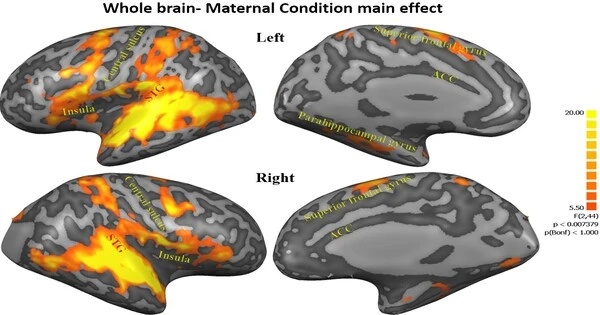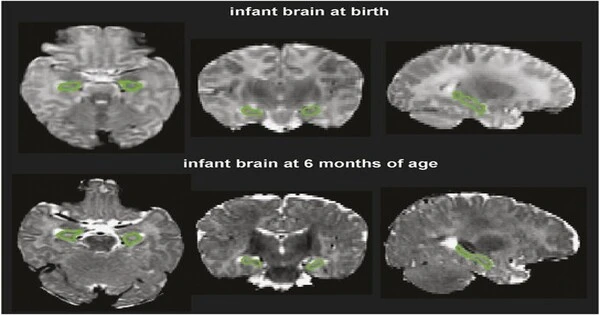Children of clinically depressed mothers are three times more likely than their low-risk classmates to acquire depression themselves. Researchers are striving to understand the cognitive roots of the risk, and some studies have found abnormal brain processing of reward in at-risk youngsters as young as six. The question of whether children with a parental history of depression have a biological predisposition to decreased neuronal reward responding or whether it is primarily influenced by social variables remains unanswered. New research indicates that those muted responses were dependent on maternal feedback, implying the latter.
Elsevier published the work in Biological Psychiatry: Cognitive Neuroscience and Neuroimaging.
Researchers have long identified alterations in brain activity related with adult depression, notably in the ventral striatum (VS), which is associated with motivation, pleasure, and goal-directed activities. Similarly, multiple studies have found that striatal reactions to pleasant events are dampened in adolescent offspring of sad parents, predicting subsequent depression development. However, new research indicates that these brain alterations can occur long before the adolescent years, when the risk of depression normally increases.
In our study, mothers’ own history of depression by itself was not related to altered brain responses to reward in early school-age children. Instead, this history had an influence on children’s brain responses only in combination with mothers’ parenting behavior, such as the ability to acknowledge, imitate, or elaborate on their child’s positive emotions.
Dr. Morgan
Judith Morgan, PhD, of the University of Pittsburgh in Pittsburgh, Pennsylvania, USA, recruited 49 children aged 6 to 8 who had no history of psychiatric disease for the current study. Half of the moms had a history of clinical depression, while the other half had no psychiatric history. Children received functional magnetic resonance imaging while playing a video game in which they had to determine which of two doors contained a concealed token in order to quantify reward-related brain activity (fMRI).
Depression may disrupt parents’ capacity for emotional socialization, a process by which kids learn from their parents’ reactions to their emotional responses. Positive socialization responses include acknowledgment, imitation, and elaboration, whereas negative or emotionally dampening parental responses may be dismissive, invalidating, or punitive.

Mothers in the study completed a lengthy questionnaire meant to assess parental emotional socialization by presenting a dozen situational vignettes of children displaying good emotions and gathering parents’ reactions to them. The researchers discovered that children with a parental history of depression were more likely to have lower reward-related brain activity in the VS, but only if their mothers reported less enthusiastic and dampened responses to their children’s pleasant feelings.
“In our study, mothers’ own history of depression by itself was not related to altered brain responses to reward in early school-age children,” said Dr. Morgan. “Instead, this history had an influence on children’s brain responses only in combination with mothers’ parenting behavior, such as the ability to acknowledge, imitate, or elaborate on their child’s positive emotions.”
“This is hopeful news as interventions geared at coaching parents to encourage positive emotions in their children may have a powerful impact on child reward-related development, especially for families of children who may be at greater risk because of a family history of depression,” Dr. Morgan added.
According to Cameron Carter, MD, the Editor of Biological Psychiatry: Cognitive Neuroscience and Neuroimaging, “This significant study exemplifies how clinical neuroscience can reveal neural mechanisms underlying depression and uncover new connections that may explain why one person has depression while another does not. These connections move us beyond clinical observation and therapy alone, opening up new options for prevention (such as parenting interventions) that can promote resilience and wellness.”





